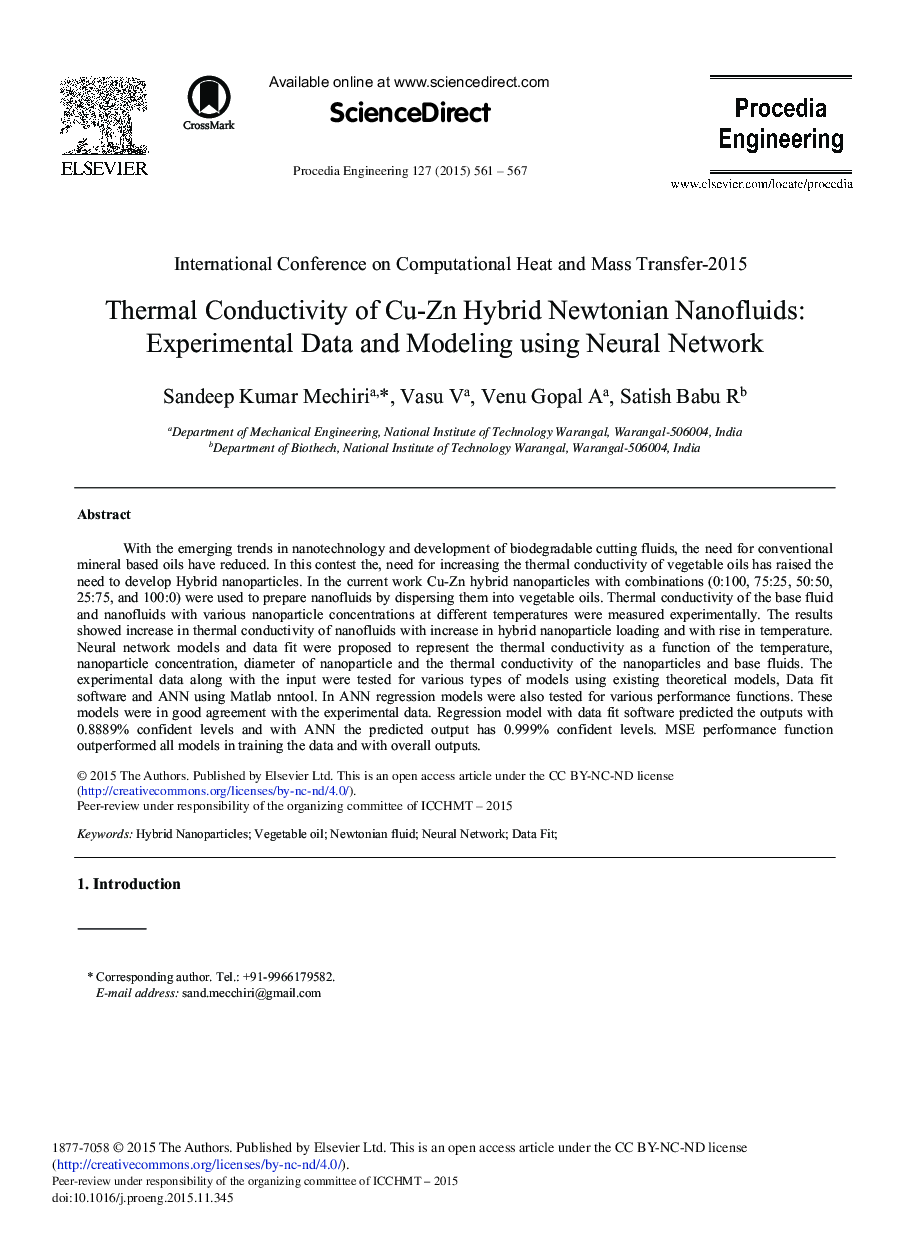| Article ID | Journal | Published Year | Pages | File Type |
|---|---|---|---|---|
| 854783 | Procedia Engineering | 2015 | 7 Pages |
With the emerging trends in nanotechnology and development of biodegradable cutting fluids, the need for conventional mineral based oils have reduced. In this contest the, need for increasing the thermal conductivity of vegetable oils has raised the need to develop Hybrid nanoparticles. In the current work Cu-Zn hybrid nanoparticles with combinations (0:100, 75:25, 50:50, 25:75, and 100:0) were used to prepare nanofluids by dispersing them into vegetable oils. Thermal conductivity of the base fluid and nanofluids with various nanoparticle concentrations at different temperatures were measured experimentally. The results showed increase in thermal conductivity of nanofluids with increase in hybrid nanoparticle loading and with rise in temperature. Neural network models and data fit were proposed to represent the thermal conductivity as a function of the temperature, nanoparticle concentration, diameter of nanoparticle and the thermal conductivity of the nanoparticles and base fluids. The experimental data along with the input were tested for various types of models using existing theoretical models, Data fit software and ANN using Matlab nntool. In ANN regression models were also tested for various performance functions. These models were in good agreement with the experimental data. Regression model with data fit software predicted the outputs with 0.8889% confident levels and with ANN the predicted output has 0.999% confident levels. MSE performance function outperformed all models in training the data and with overall outputs.
